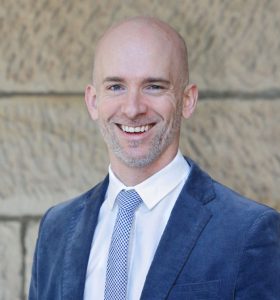
by Adam Majsay Deputy Principal (Teaching & Learning) K-12 | Emanuel School
amajsay@emanuelschool.nsw.edu.au
Our job is never just teaching our subject. It is always more than that.
It can often be the unplanned digression from the planned lesson that provides the most memorable teaching moments for both the teacher and the learners.
During a recent professional learning course on how teachers should best cater for the needs of gifted students, participants discussed the idea of framing learning through a conceptual lens, rather than through a singular focus on the content knowledge of the discipline. The concept-based curriculum considers student learning at an abstract level, exploring universal themes and generalisations around those themes. I recently experienced the richness of such abstraction in my teaching practice.
In my Year 8 Music class, early on in a unit on the traditional music of Torres Strait Islander and Australian Aboriginal people, students were learning a folk song, watching a range of video performances of the song. Our viewing of performances of Taba Naba erupted into an energised (and unsolicited) debate amongst students on cultural appropriation, and the ways in which we understand others’ cultures. As teacher, I took a step back and allowed the student voices to drive the conversation. Passionate views were voiced on what it is to cause someone offence and on the responsibility we assume when we realise that our words or actions have offended someone.
I extended a challenge to the three most vocal advocates for cultural sensitivity, incensed by the unwillingness of their peers to hear their viewpoint, to find an online resource they think would be the most effective in convincing someone of the need to reconsider their position on the appropriation of another’s culture.
Sharing the advice that it is easier to change someone’s mind with soft, woollen gloves than with a sledgehammer, they agreed, but remarked that the sledgehammer would be more fun…
Our unplanned deviation from the lesson plan highlighted how rich the learning opportunities can be when we allow the digression to guide the learning.
The lesson about a simple folk song became a much richer learning experience for the students, and for the teacher. A straightforward lesson about the interplay between rhythm and pitch, and between text and movement became a lesson on culture, recognition and respect. A lesson in which students were enthusiastically engaged in learning about and through music evolved into a lesson in which students engaged in discourse as passionate advocates for firmly held views.
It became a better lesson than the one I had planned. And that is a great thing.
As a Music teacher, my job is much more than teaching music.